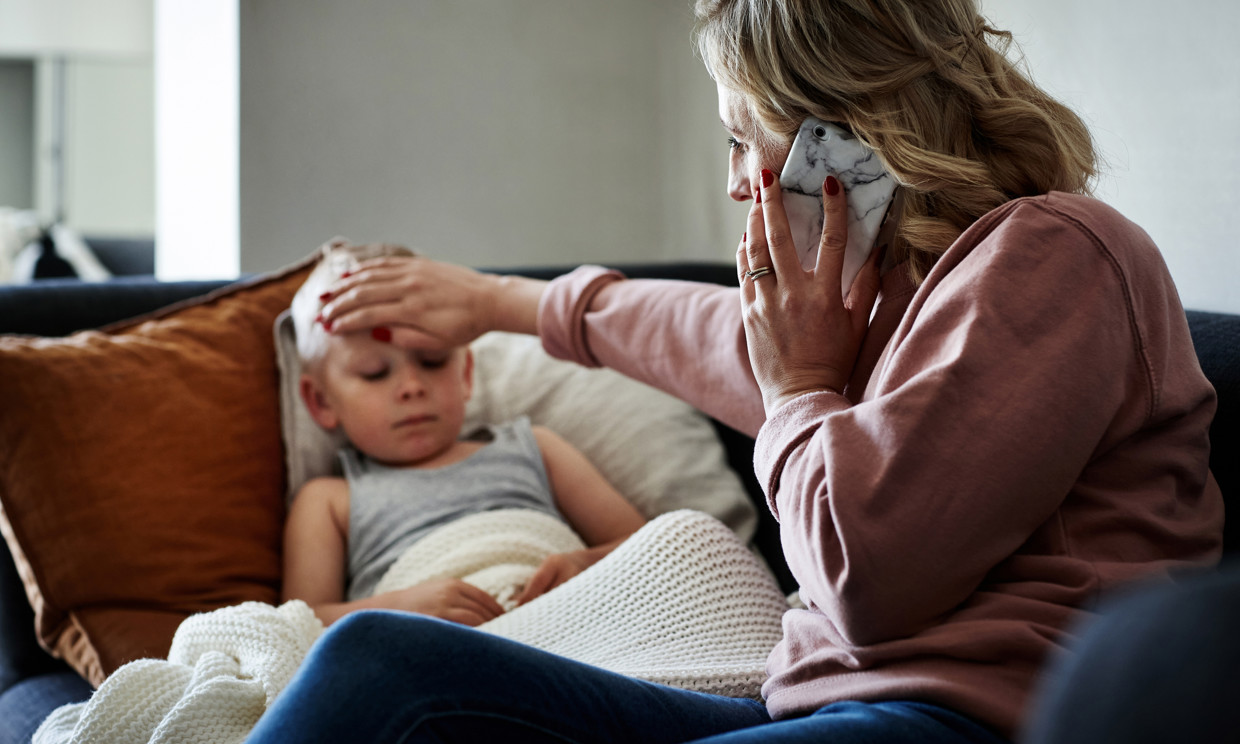We’ve just (officially) hit winter and yet, it seems like your household has been invaded by every germ. Your baby is onto their third cold, and your toddler’s nose won’t stop dripping, you and your partner are just getting over another bout of COVID and we aren’t even going to mention how Gastro ripped through the house last month.
If it helps… you aren’t alone. As the cold and wet weather pulls us indoors, viruses follow.
“Children are more likely to get sick in winter than the rest of the year,” says Penny Blunden, Paediatric Nurse and Founder of Sick Happens.
“Respiratory germs are passed though coughing, sneezing and close contact, and this is super easy when we all congregate indoors due to the colder weather.
“We also tend to have lower vitamin D levels in winter due to reduced exposure to the sun and Vitamin D is essential for optimal immune function.”
The Role of Illness in Strengthening Children's Immune Systems
The next question every parent asks… does it get better?
When children are young, they seem to be sick all the time. Phrases like ‘immunity building’ get thrown around, but is that true? Or are we just trying to give ourselves comfort as we struggle through the shorter days and longer nights?
“Getting sick is one way that little immune systems become stronger and more robust,” Blunden says, comforting all parents.
“Children’s immune systems are immature from birth, and it takes time for them to develop memory cells to fight off germs effectively.
“As they get older, they have experienced more exposure to a huge variety of germs and also had their scheduled immunisations.
“This combo means they tend to get sick less frequently than those first few (hectic) years of life.”
Prioritising Prevention: Strategies to (as much as possible) keep the germs away
Blunden explains that focusing on prevention is the key and recommends the following strategies:
- Ensure children practice hand washing regularly.
- Ensure their vaccinations are up to date.
- Help them learn good respiratory hygiene – like coughing into their elbow.
- Sleep, a varied healthy diet and drinking lots of fluid helps their immune system be the best it can be.
- Get outdoors when it’s sunny to soak up that vitamin D.
When it comes to multivitamins, which parents seem to be inundated with advertisements on their benefits at this time of year, Blunden says they can be helpful if the child has a particular health concern or a very restricted diet, but to always seek advice from the child’s doctor beforehand.
“There is evidence to suggest probiotics can reduce the severity and duration of respiratory viruses in children, but as there are many different strains of probiotics, it is still best to first discuss their use with your doctor to figure out which one is right for your child,” she adds.
What to do when your child comes down with a virus
Regardless of how much broccoli and oranges your child eats, short of placing them in a bubble, they’re going to get sick.
Besides chanting ‘immunity building’, Blunden’s first recommendation is to keep your child at home.
“When their bodies are fighting a virus, they need more downtime, close attention and we also need to avoid spreading the virus to others, otherwise the germs will just continue to circle around and around and they’ll be sick again in no time,” she says.
She highlights that, while they are sick, fluid intake is more important than food intake.
The body needs water to function and fluids support in recovering from illness.
If your child is open to eating, Blunden says not to underestimate the power of varied nutritious diet to support their recovery.
“It’s also important to know what symptoms can be safely managed at home versus when to seek medical attention,” she adds.
Which is why she created online courses and products to support parents to navigate inevitable sickness and also shares her expertise on her Instagram.
Finally, stress is a big factor for immune function, and it’s not different for children.
Blunden recommends focusing on attachment and cuddles to support them while they are sick.


